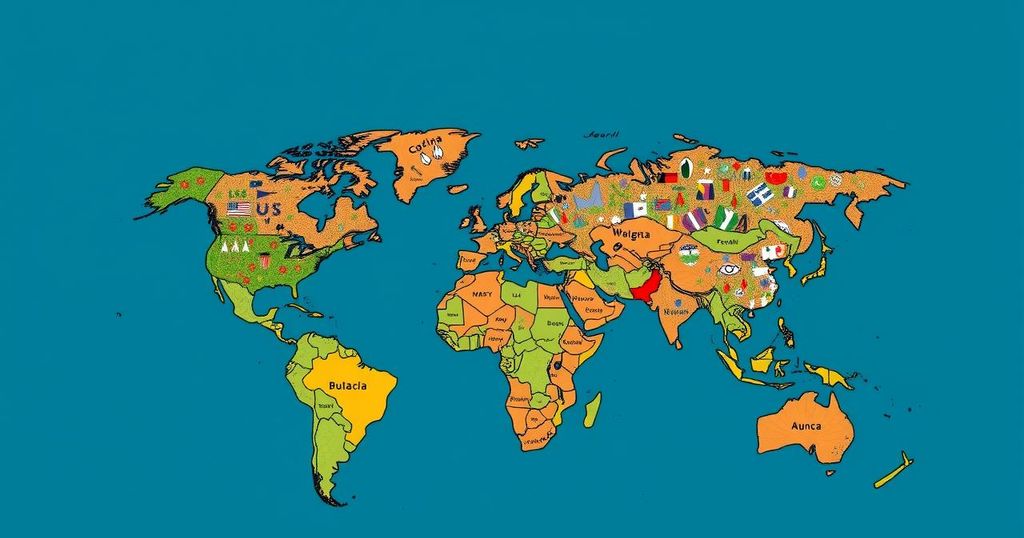Collaborative Efforts for Climate Action and Refugee Empowerment in Uganda
The climate crisis is severely impacting refugees and host communities, necessitating urgent action. A collaboration involving Spotify, Coldplay, FC Barcelona, and UNHCR aims to implement reforestation and recycling projects in Uganda, specifically targeting refugees affected by climate-related disasters. This initiative highlights the intersection of climate action and humanitarian support, recognizing the pressing needs of over 1.7 million refugees in Uganda and the role of youth in promoting sustainability.
The climate crisis places an overwhelming burden on refugees and internally displaced persons, as well as the host communities that accommodate them. Faced with extreme environmental challenges, these populations find themselves trapped in dire circumstances with limited options for escape. To address this pressing issue, a collaborative initiative involving Spotify, Coldplay, FC Barcelona, the FC Barcelona Foundation, and UNHCR has been established. This initiative aims to promote reforestation efforts in Ugandan settlements inhabited by refugees and their host communities, providing much-needed environmental restoration in areas devastated by severe drought. Furthermore, the program encourages young refugees to engage in innovative projects that tackle the plastic waste crisis and create sustainable building materials. By collecting discarded plastics, these youth are empowered to develop durable, eco-friendly tiles, thereby contributing to both environmental and economic sustainability. Since 2022, the partnership between FC Barcelona, the FC Barcelona Foundation, and UNHCR has leveraged the transformative power of sports to benefit vulnerable populations, including refugee children and youth in Colombia, Malaysia, Türkiye, El Salvador, and Uganda. Uganda, in particular, confronts significant challenges stemming from climate change and mass displacement. It is highly susceptible to the adverse impacts of climate change, such as erratic rainfall, recurrent droughts, flooding, and seasonal wildfires. These climate-induced disruptions to rainfall patterns exacerbate food insecurity by complicating agricultural planning. Presently, Uganda hosts over 1.7 million refugees from South Sudan, the Democratic Republic of Congo, Burundi, and Somalia, all of whom are at heightened risk from the climate crisis. The intertwining consequences of climate change and forced displacement place immense strain on local resources, leading to increased tensions and rendering humanitarian support considerably more complex. UNHCR’s coordinated efforts in partnership with various stakeholders aim to address the immediate needs of refugees while concurrently fostering sustainable improvements to essential services. These efforts are designed not only to alleviate dependency on humanitarian assistance but also to strengthen community resilience against impending climate challenges, ultimately preparing them for a more sustainable future.
The intersection of climate change and forced displacement represents a growing concern, especially for refugee populations and their host communities. The climate crisis disproportionately impacts these groups, as they often lack the resources to adapt to or recover from environmental shocks such as drought or flooding. In countries like Uganda, which has become a significant refuge for displaced individuals, the challenge is starkly visible. As climate patterns become increasingly erratic, agricultural planning suffers, food insecurities rise, and humanitarian efforts struggle to meet growing demands. The collaboration between international organizations and community actors aims to create resilient systems through initiatives that promote environmental restoration, capacity-building, and sustainable practices among displaced communities.
The collaboration between prominent organizations and artists signifies a vital response to the dual crises of climate change and displacement faced by Uganda’s refugees. By engaging in reforestation efforts and promoting innovative, sustainable practices among young refugees, this initiative seeks to address immediate environmental challenges while helping communities secure a more resilient future. As climate change continues to threaten the foundations of stability and security for displaced individuals, proactive measures are essential in safeguarding their rights and well-being, ensuring that both refugees and host communities can thrive despite adversity.
Original Source: www.unhcr.org




Post Comment